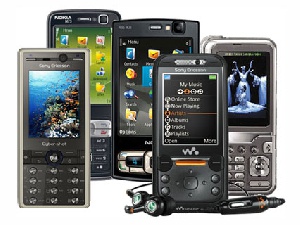The National Communication Authority (NCA) has reported that at the end of September this year there were a little over 27.5 million mobile phone access lines in the country, which shows that there are more mobile phone chips (SIM cards) in Ghana than people.
According to the data released by the telecom regulator, Ghana -- with an estimated population of 25.9 million -- has a mobile phone penetration rate of 106%, affirming concerns that the existence of multi-simming, which happens when one subscriber owns more than one SIM card, is widespread among mobile phone users.
Month-to-month mobile phone subscription growth increased marginally, by 0.1% for the month of September, bringing total subscriptions for the month to 39,844.
tiGO was the biggest gainer in the month of September, recording a 1.12% increase in its subscriber base to a little over 3.8 million.
MTN, which still controls almost half of the mobile telephony market with a subscriber base of just above 12.7 million subscribers, also recorded positive growth figures of 24,829 additional subscribers in the month of September to cement the company’s place as the leading mobile network operator in the country.
However, four other mobile network operators lost subscribers. Vodafone’s subscriber base decreased by 11,174 to 5.8 million, while Glo Mobile also recorded a drop of 11,360 in subscriber figures to a little over 1.6 million.
Airtel and Expresso also reported a decline in subscriber numbers by 2,341 and 2,511 to 3.36 million and 153,782 respectively.
The growth of mobile voice subscriptions in the country to some extent substitutes for fixed-line access. In fact, whilst mobile voice has continued to increase, fixed-line voice has recorded erratic growth figures -- from a high of 288,000 at the beginning of the year to 277,000 at the end of September.
This development has excited mobile phone network stakeholders, who are of the view that there is a significant grey-market in voice telephony to be exploited despite the over-100% penetration rate, while others fear this is an indication that the country’s voice telephony market has reached a saturation point -- with opportunities now being in the data market.
According to some of the leading mobile phone network operators in the country, the mobile penetration rate of the country is highly overrated -- which calls for concerted efforts to deepen the business operating environment and bring communication services to a lot more people.
Such operators say that, in actual fact, only about half of the estimated 25-million population currently have access to mobile voice and data services, signifying a wide untapped market for the telecom operators.
However, an official of the NCA explained to B&FT that the Authority uses the accepted international formula in calculating the mobile penetration rate; saying that the concern should not be about the penetration rate as there is no ceiling to the rate, and the country’s liberalised telecom environment means the penetration rate could even hit 600 percent.
Business News of Friday, 8 November 2013
Source: B&FT













